Updated: May 01, 2025
Legally Reviewed by Alan Pearse
Charter of Rights and Freedoms
The Short Version:
a. If the police breach your rights, the breathalyzer certificate can be excluded.
b. If the breathalyzer certificate is excluded, in most cases you will win the trial.
The Long Version:
Canada is a modern liberal democracy, and so therefore it is unsurprising that people charged with criminal offences have civil liberties that are protected by the Constitution. For the most part, citizens of Canada go about their lives exercising their freedoms without even thinking about them. We take concepts like freedom of expression, freedom of mobility, and freedom of the press more or less as our birthright, and never give them a second thought.
In the criminal justice system, our constitutional civil liberties take on a heightened importance. The majority of our civil liberties are contained in a section of the Constitution called The Charter of Rights and Freedoms. Generally, these rights are similar to many of those found in the American Bill of Rights, although there are quite a few differences.
In an impaired driving context, some rights will be litigated more often than others. Some questions that an accused person will want to think about are as follows:
1. Was there a breach of section 8 of the Charter of rights and freedoms?
Section 8 deals with unreasonable search and seizure. In a DUI file, this typically refers to the seizure of the accused’s breath on either an approved screening device or a breathalyzer. If there was a breach, this can result in the exclusion of evidence, and a subsequent acquittal.
2. Was there a breach of section 9 of the Charter rights and freedoms?
Section 9 deals with arbitrary detention. Was the accused arbitrarily detained at some point in the investigation? Again, if the answer is yes, the evidence can be excluded and the accused may be acquitted.
3. Was there a breach of section 10(b) of the Charter rights and freedoms?
Section 10(b) deals with the right to counsel. Have the police interfered with the accused’s right to talk to a lawyer? If so, an acquittal is possible.
About Alan Pearse
Alan Pearse is a Saskatchewan-based DUI lawyer with a practice focused exclusively on impaired driving litigation. Alan is the author of Guide to Breathalyzer Certificates in Canada published by Canada Law Book.
Practicing since 2000, he has defended thousands of clients and frequently lectures on DUI law to lawyers and students. A member of the Law Society of Saskatchewan, he represents clients across Canada, except in Quebec. Alan Pearse regularly answers DUI-related inquiries from both legal professionals and the public.

What They Are Saying
Alan did a very good job. I felt like the police were on trial.
Allan Pearce was amazing and made the whole process easy to understand and gave me peace of mind. His experience and knowledge assured me that I had nothing to worry about. I highly recommend him as I didn't even have to step a foot in the court room and he won my case with ease. If you end up in the same situation give this man a call because he gets results fast. Thank you Allan for everything, I am very grateful for how quickly you resolved this problem for me and how easy you were to talk to.
I’m a single mother, and was going through a very bad breakup. I made a terrible mistake by drinking and driving, and put my child at risk. However, this is not who I really am. I’m generally very against drunk driving. I know that what I did was wrong, but I’m basically a good person. Alan met with me very quickly, and got the ball rolling. He was straightforward and honest, and told me what my chances were. I eventually decided to fight the charges, because I just couldn’t have a criminal record. I was very impressed with his abilities in court, and I eventually won the trial. Thank you so much.
Alan was very professional and got the absolute best results!!! Would recommend him to anybody !!! Thank you Alan
Alan represented me for the last 20 months with various charges. He has had all of my charges and fines dropped. He was always diligent at responding to my calls and texts when I had questions or concerns. His experience in DUI law and winning track record speaks for itself. I highly recommend Alan to anyone facing these charges and all of the other charges/fines that come along with anyone’s case.
